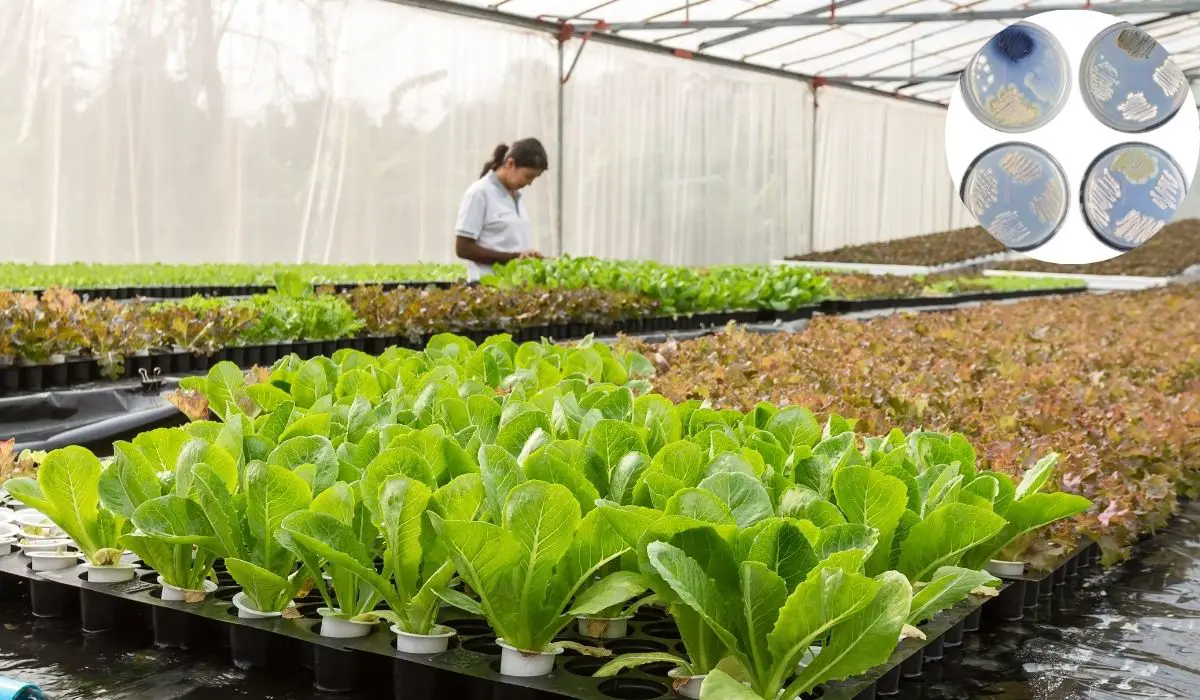What are the best beneficial bacteria for plants that are essential and enable the plant to thrive?
Plants require beneficial bacteria to survive and grow best. Many types of beneficial bacteria help in the plant growth process, including nitrogen fixation and suppressing soil pathogens. The best bacteria for plants will be able to provide several benefits.
The Best Beneficial Bacteria For Plants
What type of bacteria is found in the soil? The type of bacteria found in soil is mostly.
- Actinomycetes
- Proteobacteria
- Acidobacteria
- Bacteroidetes
- Verrucomicrobia
- Chloroflexi.
Soil can be composed of nearly 60% of Actinomycetes. Most of the Actinomycetes have a positive effect on plant growth, and some help increase soil fertility.
The common types of bacterium used as plant probiotics are Lactobacillus, Bacillus subtilis, etc. Rhizobia is a type of bacterium that fixes nitrogen from the atmosphere. This bacterium is efficient, as it assists legumes in growing best.
Agrobacterium tumefaciens is also the best beneficial bacteria for plants because it infects plant cells. This bacterium induces the plant cell to produce food for its growth and creates galls or tumors on the host plant.
What Are The Best Beneficial Bacteria For Plants That Are Essential And Enable The Plant To Thrive?
Plants require beneficial bacteria to survive and grow best. Many types of beneficial bacteria help in the plant growth process, including nitrogen fixation and suppressing soil pathogens. The best bacteria for plants will be able to provide several benefits that include
Nitrogen Fixation.
For nitrogen-fixing, there are several bacteria for this important task. They include Azotobacter, Rhizobium, Bacillus azotoformans. Another beneficial bacteria for plants are Azoarcus, which is best for fixing nitrogen from the atmosphere.
Suppressing Soil Pathogens.
These bacteria help suppress soil pathogens including Pseudomonas aeruginosa, Bacillus pumilus, etc. Streptomyces griseoviridis is best suitable for suppressing the growth of fungi.
Pathogen Suppression.
Saccharopolyspora is one of the best beneficial bacteria for plants, which produces different types of antibiotics that have anti-fungal activity against many plant pathogenic fungi. Examples include thiopeptide antibiotics and pleuromutilins. Other beneficial bacteria for plants are Bacillus subtilis, Bacillus subtilis subspecies, Piceomonas shigae, Streptomyces griseus var melanosporous, etc.
Improve Soil Fertility.
The best beneficial bacteria for plants that improve soil fertility include Azotobacter chroococcum and Azospirillum lipoferum etc.
Learn more about How to Store Soil?
Important Microorganisms In Improving Plant Growth Are Phosphobacteria.
These beneficial bacteria for plants are best suitable to use as fertilizer or organic amendment because they help the plants to acquire phosphate by solubilizing insoluble phosphates to make them available to the roots of the plant.
Critical Facts You Need To Know About The Best Beneficial Bacteria For Plants
Having seen the type of beneficial bacteria plants need and their work, it’s important to look at the facts that you need to know about.
- First of all, the best beneficial bacteria for plants and other microorganisms need the right environment to thrive. This includes soil that has a pH between 6 and 8, with excellent drainage conditions as the beneficial bacteria for plants cannot survive in waterlogged soils. These bacteria for plants will be those that can withstand normal soil conditions as well as drought conditions.
- Second, the best beneficial bacteria for plants perform best when they are mixed with compost tea/ extract. There are different types of composts available, including vermicompost, cow dung compost, etc. Using these tools helps in increasing the number of best beneficial bacteria not just for plant growth but also improves crop yields.
- Thirdly, there are different nutrients needed by the best beneficial bacteria for plants to thrive well. This includes Nitrogen, Phosphorus, Potassium, and Magnesium. Having the beneficial bacteria for plants with these nutrients available will play a big role in promoting the best plant growth because the bacteria for plants also include those that can fix nitrogen etc.
- Fourth, the best beneficial bacteria for plants need the best light intensity and temperature conditions to grow best. The ideal temperature is between 68 and 77 degrees Fahrenheit (20-25 degrees Celsius). Soil temperature plays an important role in bacterial growth as well as plant growth. Chill hours are also needed by the best beneficial bacteria for plants to survive and remain active throughout their life cycle.
Learn more about How Long Does It Take for Fertilizer to Work on Plants?
Frequently Asked Questions
What type of bacteria is found in soil?
In the soil, there are both good and bad bacteria that either work for or against your plants. The best beneficial bacteria for plants include rhizobacteria, pseudomonads, etc. help the plants thrive in their growth journey.
Bad bacteria like e-Coli, salmonella, etc. commonly kill the best beneficial bacteria for plants and other microorganisms in soil and making it unsuitable for plant growth.
How does Rhizobium help in improving soil fertility?
Rhizobium is the best beneficial bacteria for plants that help improve soil fertility by fixing nitrogen from the atmosphere and making them available to the roots of the plant. This process is called N2 fixation. Nitrogen is one of the essential nutrients plants need to grow best and prosper in their growth journey.
Is Lactobacillus good for plants?
Lactobacillus helps in promoting the best plant growth by producing certain enzymes like proteases and cellulases that helps in increasing the best plant yield.
The best beneficial bacteria for plants that fix atmospheric nitrogen include rhizobia, azotobacter etc., which includes lactobacillus as well.
However, lactobacillus is best known to remove one of the root-injuring substances like alkaloids from soil and make them available to the best beneficial bacteria for plants.
Lactobacilli produces lactic acid when grown under similar conditions as yoghurt production (high temperature). This best beneficial bacteria for plants helps suppress pathogens in soils and also reduces transplant shock when applied on seedlings
Is Agrobacterium tumefaciens harmful to plants?
Agrobacteria do not directly harm the best beneficial bacteria for plants but indirectly because they help in increasing plant size through crown galls or knobs on the roots. These knob-like projections caused by agrobacteria hurt the best beneficial bacteria for plants because it becomes difficult to penetrate the best beneficial bacteria cells in soils.
However, when these best beneficial bacteria for plants are killed, harmful microbes take their place and infect the best beneficial bacteria for plants making it difficult for them to survive and thrive well in soil.
What is the importance of actinomycetes?
Actinomycetes help in producing antibiotics like streptomycin which helps in removing pathogens from soil and promoting the best plant growth. The best beneficial bacteria for plants also include mycorrhizal fungi like arbuscular (AM) and ectomycorrhizal (ECM). Mycorrhizae fortify the best plant defences by increasing the best plant uptake.
Final Words
Now you have all the information about the best beneficial bacteria for plants, and you know that there is a difference between good and bad bacterial growth in soil and can take action to protect your soil against pathogenic effects.
Remember that the best useful microorganisms also help to produce better root systems, reduce diseases and improve overall plant health. It is necessary, therefore to use these as nutrients or as biofertilizers as described above.

